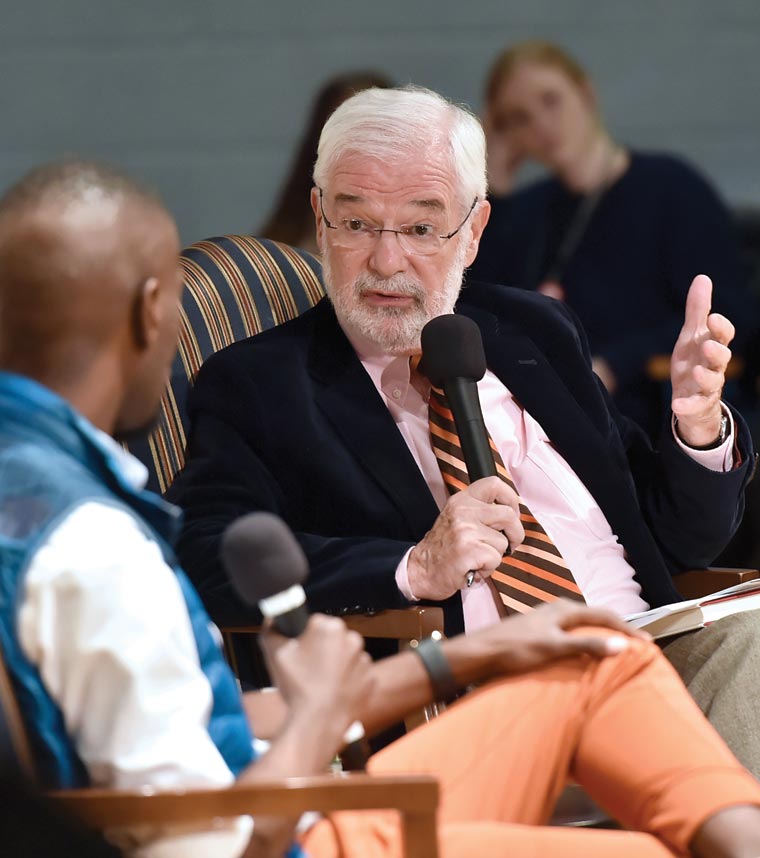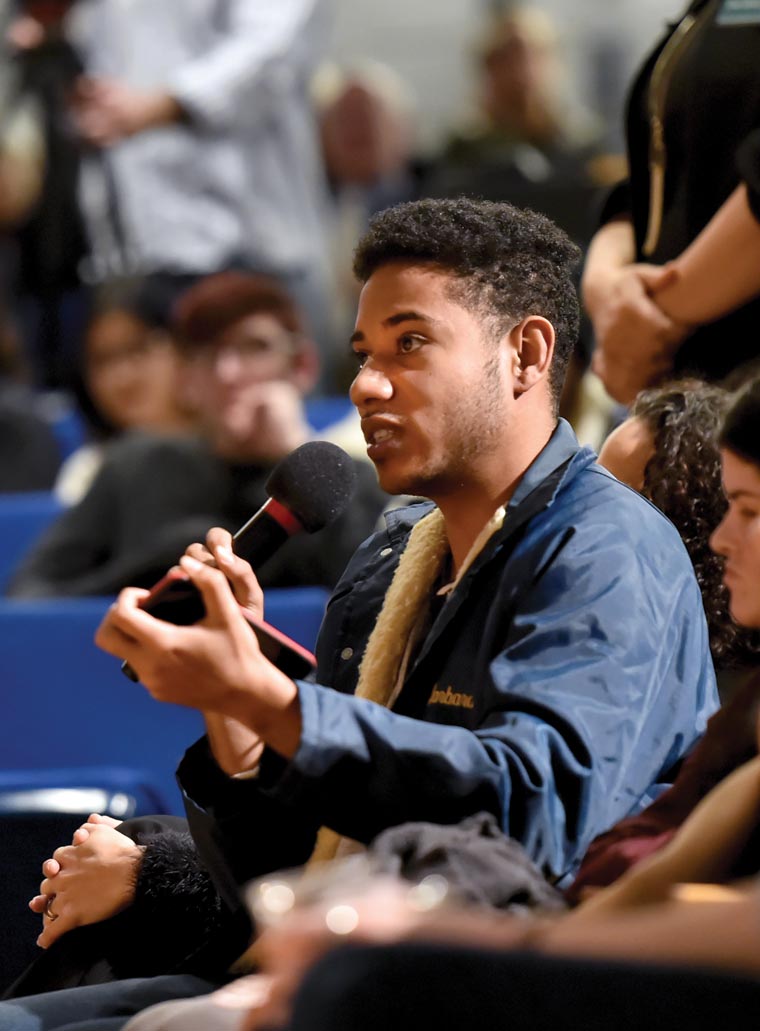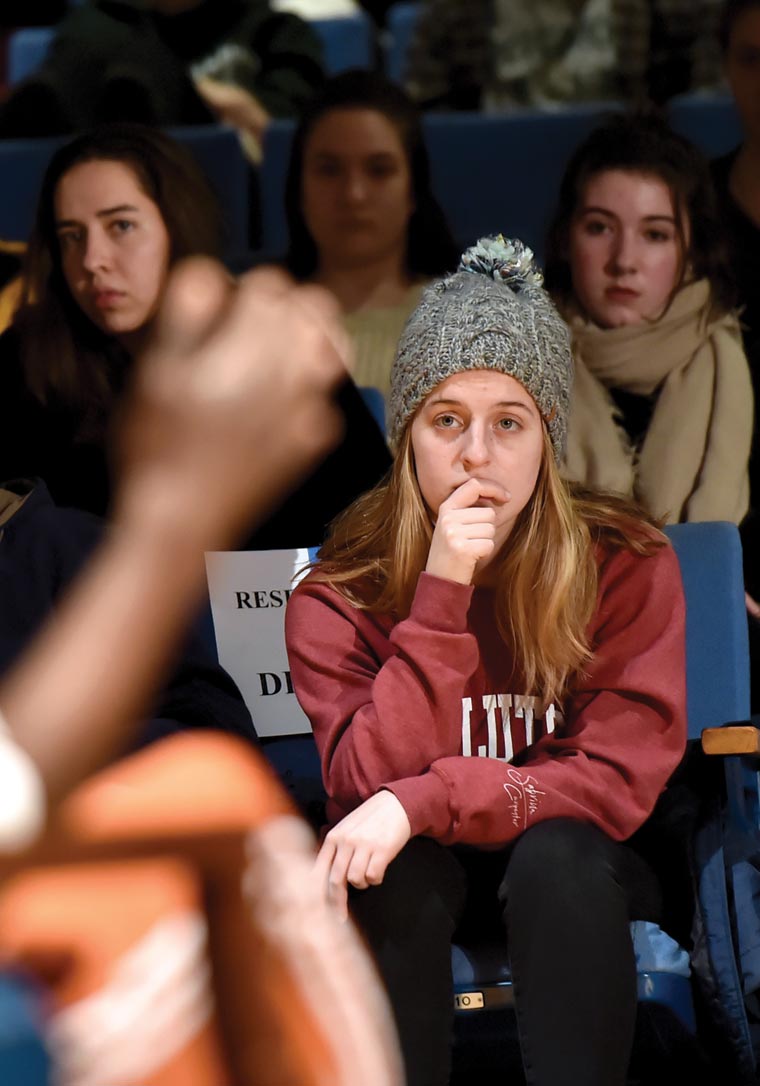“Congress shall make no law respecting an establishment of religion, or prohibiting the free exercise thereof; or abridging the freedom of speech, or of the press; or the right of the people peaceably to assemble, and to petition the Government for a redress of grievances.” – Amendment I, Constitution for the United States of America
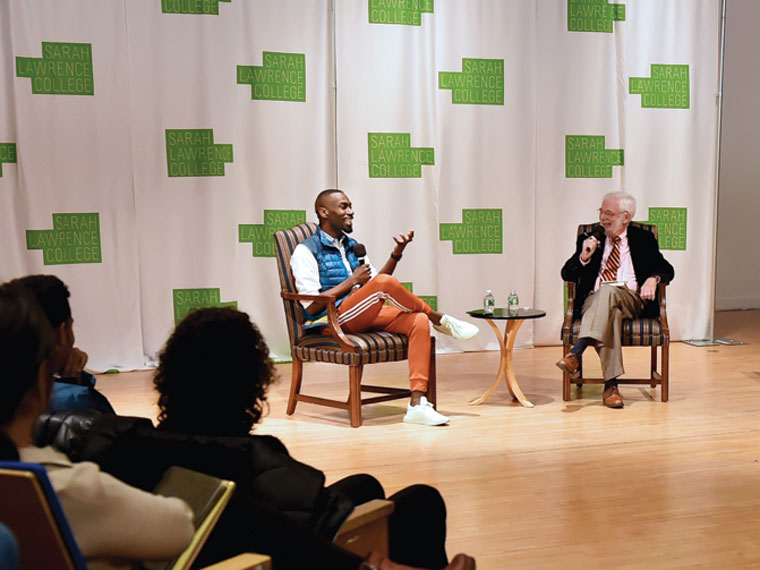
Throughout 2018–19, Sarah Lawrence’s Difference in Dialogue series has explored some of the most contentious issues facing American society. A keynote event in November paired interlocutors with contrasting points of view: DeRay Mckesson (above, left), an activist and author of On the Other Side of Freedom: The Case for Hope, and Sanford Ungar (above, right), director of the Free Speech Project at Georgetown University. Mckesson and Ungar came together to discuss the First Amendment and the limits of free speech today. This article offers a condensed transcript following one of the many threads of their conversation.
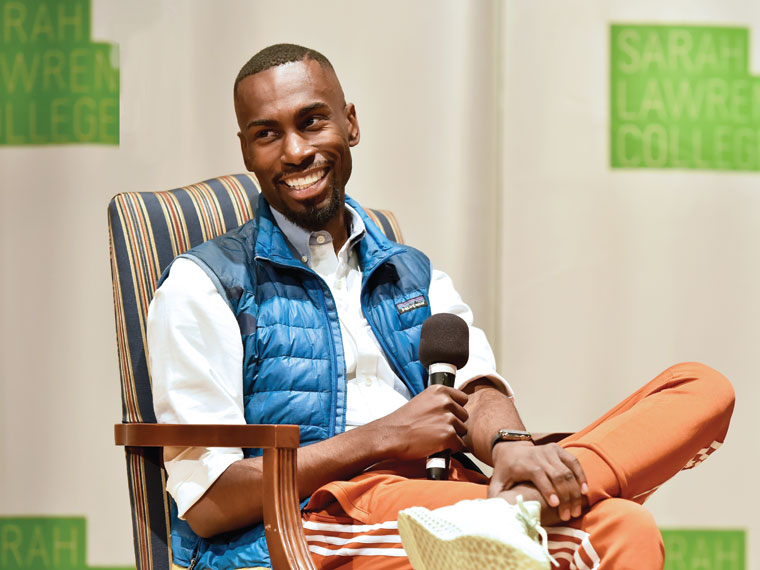
Sanford Ungar: Do you think there are [boundaries], or there ought to be, and that there are boundaries properly called “unfree” speech in American society?
DeRay Mckesson: You know, I’m always a little perplexed about the way we talk about free speech, because it’s a question of like, free for who? … What’s not protected under the First Amendment is speech that incites violence. … And that never is a part of the conversation. People talk about it like there are two sides. There aren’t two sides to whether white supremacy is right or bad. … You’ve seen spreads [in newspapers and magazines] of Richard Spencer, the white nationalist—which is code for white supremacy—we’ve seen spreads of him in beautiful clothes, as if it’s a legitimate position. So I always worry about this idea of talking about free speech in the absence of talking about the imbalance of power.
Ungar: I agree with that. … [Richard Spencer is] a guy who gave a Nazi salute at his rally to celebrate Donald Trump’s election. Somebody who speaks badly about everybody who’s not like him. What’s his magic? Why does this culture still seem to allow him to have a spot of honor?
Mckesson: He’s trying to get me in trouble. [Audience laughs.] Whiteness is his magic. …
Ungar: But wait a minute. There are a lot of people who have a characteristic of whiteness without succumbing to being Richard Spencer.
Mckesson: … You know who does not think he’s charming? Any black-led publication.
Ungar: Of course.
Mckesson: The New York Times can [cover Spencer], because they’re not threatened by him. He’s not saying that [white people] shouldn’t exist and they aren’t whole people. And that is the power of whiteness. … You know who is not on the cover of The New York Times? People who think that the press should be burned. … The magic power is the same magic power that wrote the First Amendment. … Who would ever imagine that … the people who thought that we should sell and trade people … made the best government? We should be able to reevaluate all of this stuff. …
Ungar: Well, I mean, we’ve all read the First Amendment with the possible exception of Donald Trump. [Audience laughs.] It is, by and large, durable. It holds up. … Why is the First Amendment in trouble? … You get these polls where people say if a newspaper criticizes the government it should be shut down. I mean, a substantial number of people say that. How did we get there?
Mckesson: … I think that, for a lot of people, we’ve been in a place where speech wasn’t too free. … [When] we were in the streets when the protest began in Ferguson in 2014, it didn’t seem very free then. And the only thing I had in my hand was a cell phone and the truth, you know? … We would always say to the police, “What am I going to do with this cell phone? You have three guns.” … If you saw the videos in Charlottesville … the white supremacists were pushing the police. Like literally pushing them. If I had pushed the police, I’d be in-memoriam right now. … So, I don’t think that this is new. I think that Trump has actually heightened this conversation about speech on both sides. …
Ungar: Trump has a very interesting notion of open discussion, which is that when confronted with the truth that he doesn’t like, he tells a lie, and then he demands equal time for his lie and the mediated truth. … You know, it’s quite remarkable that editors and headline writers and journalists in general are willing to say that Trump lied. …
Mckesson: Finally the press are saying that he’s a bully, and it’s only because he’s starting to bully them.
Ungar: That’s right.
Mckesson: He was a bully before he took the mic from Jim Acosta. … And I worry about what it means when the press is only willing to tell the truth when they are the people who are victims. …
Student in Audience: … I agree with you that people can do dangerous things under the protection of the First Amendment, and that is a fundamental problem with it. … Do you view the responsibility of changing the conversation and making people responsible as the responsibility of us to each other? Or do you think that there is a real case … [for] changing the First Amendment to empower the state to control people’s discourse? That seems dangerous to me. …
Mckesson: I’m rarely advocating for more state power. What I am saying is that the power imbalance is already there. The state already has the mechanism to decide what is enforced and what isn’t, and that is what I’m questioning. So you better believe that if I go outside and start doing press conferences being like, “White people shouldn’t exist, and I call it black nationalism,” that somebody is going to be at my door. And it’s not going to be like GQ to do a photo spread. Do you know what I mean? … I’m calling into question that the enforcement mechanism is already imbalanced and that what the First Amendment does not protect is speech that incites violence. … Straight white men … wrote the Constitution. … When the only people who are the lens of what incites violence or not are people who don’t share the backgrounds [of those affected] … that is what I’m calling dangerous.
Ungar: I’m very suspicious of the state stepping in to figure out what’s dangerous. … You have to remember that if we endorse the state modifying the First Amendment now, we’re endorsing Donald Trump modifying the First Amendment. And it’s not going to be better when he gets finished. … I think the First Amendment is, in its simplicity, a brilliant statement. It’s not perfect, but we have to live better with it and hope for some wisdom in its implementation.
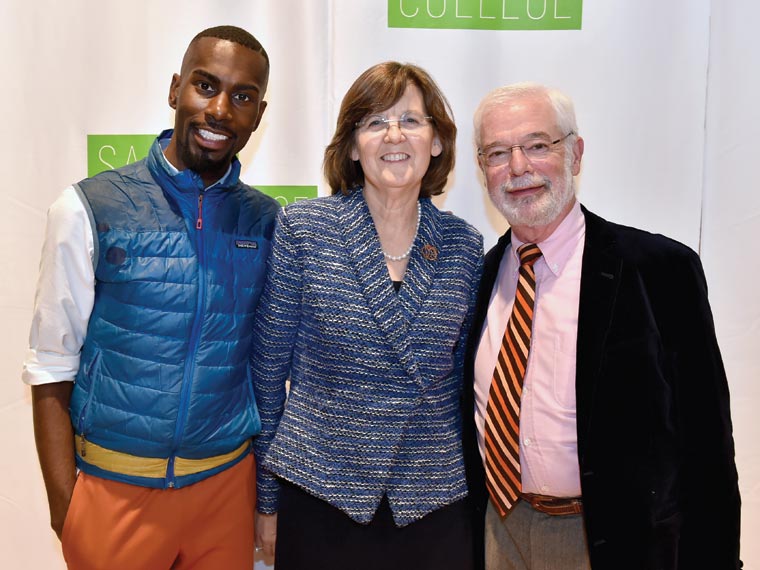
Condensed and edited for length by Katharine Reece MFA ’12
Photos by Dana Maxson
